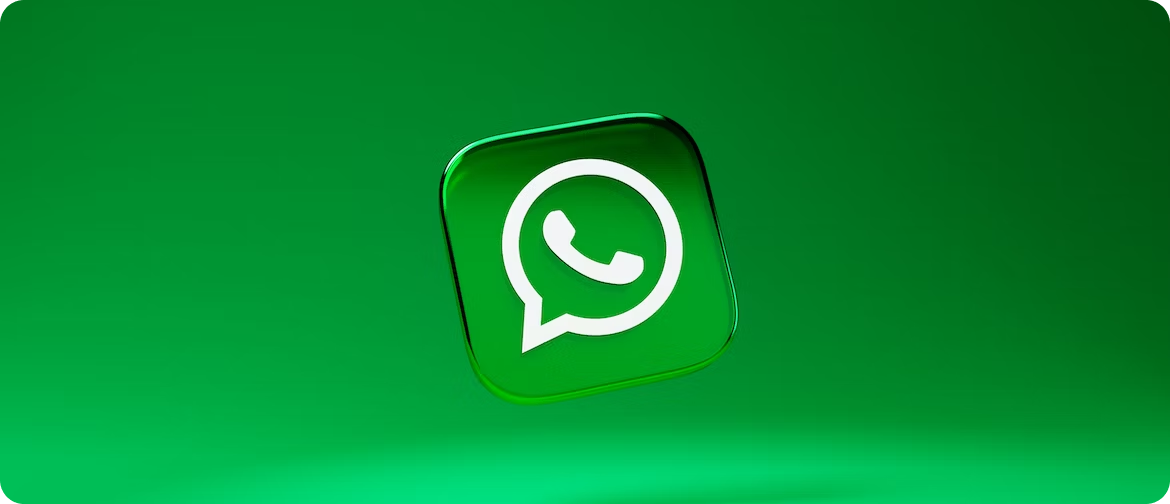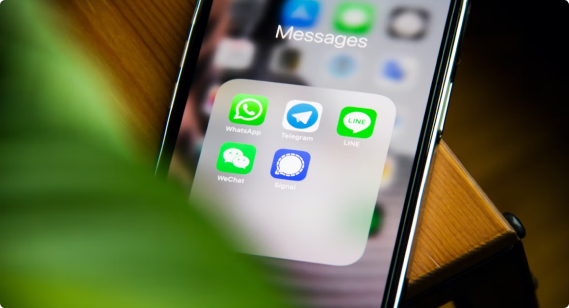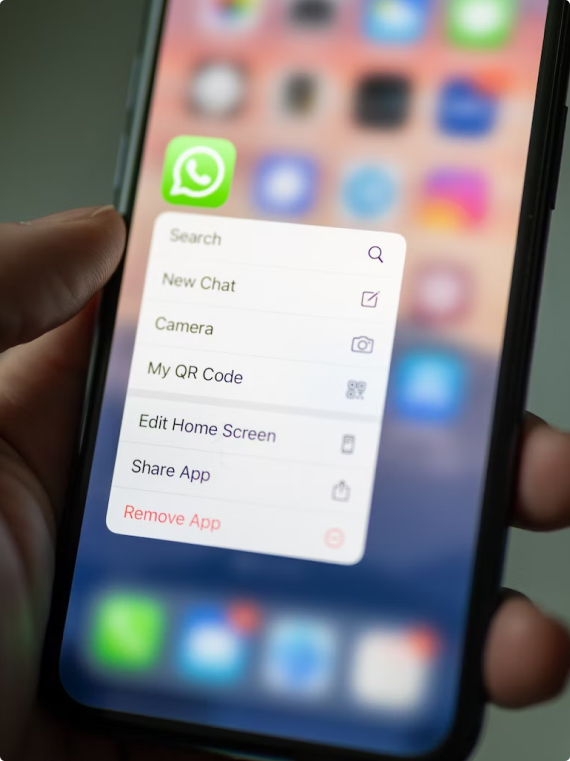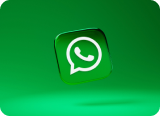WhatsApp Business API – A Quick Guide to Using It for Your Business in 2024!

WhatsApp is the world’s most popular messaging app with over 2 billion active subscribers globally and a presence in 180 countries. Initially used only for personal communication, WhatsApp is increasingly being leveraged by businesses to communicate with their customers no matter where they are on their customer journey. With conversational commerce on the rise, WhatsApp is the perfect platform as it can help to sustain customer interest and increase their purchase intent via two-way interactions that feel personal.
No wonder then that businesses across industries as diverse as retail, healthcare, education, banking, F&B, FMCG, automotive, travel and tourism, and real estate are using the WhatsApp Business API to provide high-end customer service that boosts conversions, customer lifetime value, net promoter scores, and sales. Enterprises are using the platform to answer customer queries, send targeted promotional content, and share proactive alerts related to transactions, appointments, shipping, important announcements, and more.
What is the WhatsApp Business API?
The WhatsApp Business API, made available for enterprise use in 2018, is an incredible tool for any brand that wants to create an outstanding CX by meeting customers on their favorite chat app.
If you are a business that needs to communicate with hundreds of thousands of customers on a daily basis, then the WhatsApp for Business API is a great option for you. The API is scalable and there is no limit to the number of customers you can reach with it.
You can share bulk messages simultaneously with thousands of customers. You can leverage it to share personalized marketing messages at scale, share transaction-related alerts, offer discounts, share personalized product or service recommendations, inform customers about loyalty programs, answer customer questions via bots, and so on.
The API easily integrates with existing legacy systems so you can provide quicker and more
efficient customer support and send more relevant campaigns to customers.
Is it Better to Use the WhatsApp Business
App or the WhatsApp Business API?
The plain WhatsApp Business app is free and good if you are a small, local business. But it has quite a few limitations. The WhatsApp Business app allows you to send bulk messages, but only up to 256 contacts simultaneously, not more. If you are a business with hundreds of thousands of contacts and are seriously looking at WhatsApp as a customer communication channel, then the WhatsApp for Business API is a much better option as there is no limit to the number of customers you can reach with it. Also, WhatsApp Business API allows you to send outbound highly structured messages (HSM), which is not possible with the WhatsApp Business app. Another limitation of the app is it cannot be integrated with other enterprise systems whereas the API can easily be integrated with existing systems like CRM, customer management platforms, chat platforms, and ticketing systems. When it comes to automation, the app has limited automation capabilities whereas the WhatsApp Business supports complete messaging automation with deployment of chatbots. Also, with the WhatsApp Business app, your business account can only be linked to a mobile number whereas for the API, you can link any number of your preference – toll-free, landline, or mobile.
What Makes the WhatsApp Business API Compelling for Brands Today?
No brand can afford to ignore WhatsApp Business API
as a customer communication channel any longer.
01
It is already used by billions of people and is fun, visually appealing and easy to use. Customers today spend more time on WhatsApp than on any other app, so it makes sense to meet them there.
02
WhatsApp has whopping 98 percent open rate, way higher than other channels like email, so you can boost your campaign open rates and rest assured your message gets heard.
03
WhatsApp for Business can easily integrate with your existing legacy systems like CRM, so you can manage customer conversations more effectively.
04
You can use automated messaging like chatbots, which can answer routine customer queries quickly, complete simple self-service tasks that reduce the burden on your contact center staff, and win over customers who hate to be kept waiting on phone lines and infinitely prefer messaging businesses.

05
You can convert interested customers into paying ones by effectively moving them through the sales funnel by engaging in conversations with them, effectively shortening the sales cycle.
06
You can delight customers by proactively sharing all transaction-and shipping-related updates with customers on the app itself. You can actually boost sales by sharing personalized product recommendations with customers on the app.
07
It’s highly cost-effective and you can easily scale up without increasing staffing costs. Many businesses have found WhatsApp to dramatically decrease the cost per action for each campaign.
What Are Some of the Features of
WhatsApp Business API?
- Green tick to establish brand authenticity
- Integration with CRM and other third-party systems
- Automated chatbots
- Bulk notifications via message broadcast
- Interactive conversations
- Multiple agent access
- Rich messaging with images, emojis, documents,
text + listed files - CTA buttons (up to two buttons that allow customers
to call a number or visit a website) - Quick Replies (pre-set reply options with up to three buttons
that allow customers to return a simple text message)
- Green tick to establish brand authenticity
- Integration with CRM and other third-party systems
- Automated chatbots
- Bulk notifications via message broadcast
- Interactive conversations
- Multiple agent access
- Rich messaging with images, emojis, documents, text + listed files
- CTA buttons (up to two buttons that allow customers to call a number or visit a website)
- Quick Replies (pre-set reply options with up to three buttons that allow customers to return a simple text message)

What Different Types of Messages Can Brands Share on WhatsApp for Business API?
Businesses can initiate highly structured messages (HSM) to send out notifications and other customer care messages to users that have explicitly opted-in to receive such messages. They are governed by strict rules set by WhatsApp that need to be adhered to at all times. They need to be pre-approved by WhatsApp before they can be sent out, and any failure to follow guidelines can easily lead to the templates being rejected. These templates must fall under the following WhatsApp-approved categories in order to be accepted.
Authentication Templates
They must conform to WhatsApp’s preset authentication message templates, which include optional add-ons like security disclaimers and expiry warnings. They can only be up to 15 characters long and you are not allowed to use URLs, media, or emojis. Verification codes and OTPs fall under this category.
Utility Templates
They are mostly transaction-related updates that confirm, suspend, or terminate an existing transaction. Examples include order or booking confirmations or cancellations, shipment-related updates, password changed notifications, payment reminders, and so on.
Marketing Templates
They may include promotions or offers; welcoming or closing messages; updates, invitations or recommendations; or requests to respond or complete a new transaction.
What are the Different Use Cases
of WhatsApp Business API?
How Can You Promote WhatsApp
Business API Usage Among Customers?
There are a number of entry points for customers, including:
Click-to-chat Ads on Facebook and Instagram: You can direct customers to chat with you by using the click-to-chat ad feature in the Facebook and Instagram ads.
CTA Buttons on Websites: Adding CTA buttons across your webpages will encourage customers to start real-time conversations with your customer support team via WhatsApp.
Opt-Ins at Check Out to Receive Order Notifications: Insert an active opt-in box on the checkout page for customers to request order-related notifications on WhatsApp. Customers can take action either by ticking the box or entering their phone number.
Email Signatures With WhatsApp Us Link: You can add WhatsApp links to your email signatures so your customers know you are on email and can message you if they want to.
Add QR Codes to Product Packaging, Billboards, Store Displays: These can help you transition customers from offline to online.
Use IVR Deflection: Offer customers who are calling a choice to take the conversation to a WhatsApp chat.
How Can You Get a WhatsApp Business Account?
To get a WhatsApp Business API account, you need to team up with an official partner of WhatsApp – a third-party company like edna that will offer their own platform to your brand so that you can use it to create and send bulk messages to all your customers. There are many solution providers in the market and you need to be careful while picking your partner. You must check whether they are official providers of WhatsApp and whether they offer free product support, step-by-step onboarding support, easy billing, no hidden costs, a dedicated account manager, and also guide you on how to get the most out of your WhatsApp Business API channel. You must also check the languages supported by your vendor and whether they can deploy tools on other communication platforms as well. You must carefully assess the different types of plans they offer and choose one that best fits the needs of your business. At edna, we ensure our WhatsApp platform meets all the above-mentioned criteria that an industry-leading solution should have.


What’s the WhatsApp Business Pricing Model Like?
WhatsApp Business API has a conversation-based pricing model. A conversation includes all messages delivered in a 24-hour session. The cost per conversation varies by country or region. WhatsApp has four categories of conversations – Service, Utility, Authentication, and Marketing. All service conversations are free, while the other three categories of conversations, initiated by the business, are priced differently.
In case of multiple conversations spanning different categories, charges are based on the template category. When a template is delivered, it opens a new conversation of that category and incurs the charge of that conversation category, unless the template is delivered during an open conversation of that category. For example, if a utility conversation is open and a marketing template is delivered within that open conversation, a new, separate marketing conversation is opened and the marketing conversation charge is initiated.
However, sending multiple templates of the same category within an open conversation does not lead to additional charges. For example, a business can send multiple utility templates in an open utility conversation with no additional charges. Conversations are also not be charged when users message a business after clicking on a Click-to-WhatsApp Ad button or a Facebook Page CTA. In such cases, the first conversation session is free of cost.
What’s the WhatsApp Business Pricing Model Like?
WhatsApp Business API has a conversation-based pricing model. A conversation includes all messages delivered in a 24-hour session. The cost per conversation varies by country or region. WhatsApp has four categories of conversations – Service, Utility, Authentication, and Marketing – with each category being priced differently. Service conversations, initiated by users, are eligible for 1,000 free conversations each month. The other three categories of conversations, initiated by the business, are not eligible for these free-tier conversations.
In case of multiple conversations spanning different categories, charges are based on the template category. When a template is delivered, it opens a new conversation of that category and incurs the charge of that conversation category, unless the template is delivered during an open conversation of that category. For example, if a utility conversation is open and a marketing template is delivered within that open conversation, a new, separate marketing conversation is opened and the marketing conversation charge is initiated.
However, sending multiple templates of the same category within an open conversation does not lead to additional charges. For example, a business can send multiple utility templates in an open utility conversation with no additional charges. Conversations are also not be charged when users message a business after clicking on a Click-to-WhatsApp Ad button or a Facebook Page CTA. In such cases, the first conversation session is free of cost.

Another great aspect of this pricing model is that there is no limit to the number of free follow-up messages within the 24-hour conversation window.
You will also need to factor in that your WhatsApp’s solution pricing will vary based on how you provider is charging you. Different business service providers (BSPs) have different pricing models, such as a monthly subscription fee based on the user’s monthly active usage (MAU), or a margin per conversation / per message, or both. Also, providers sometimes offer bundled services that are priced differently.
edna has one of most affordable pricing plans that can fit the needs of your business. Its installation fee and monthly subscription fee are among the most affordable in the market.




![[photo]](https://edna.io/wp-content/themes/edna/images/authors/rajrupa-ghoshal.jpg)
![[icon]](https://edna.io/wp-content/themes/edna/images/authors/ico-linkedin.svg)